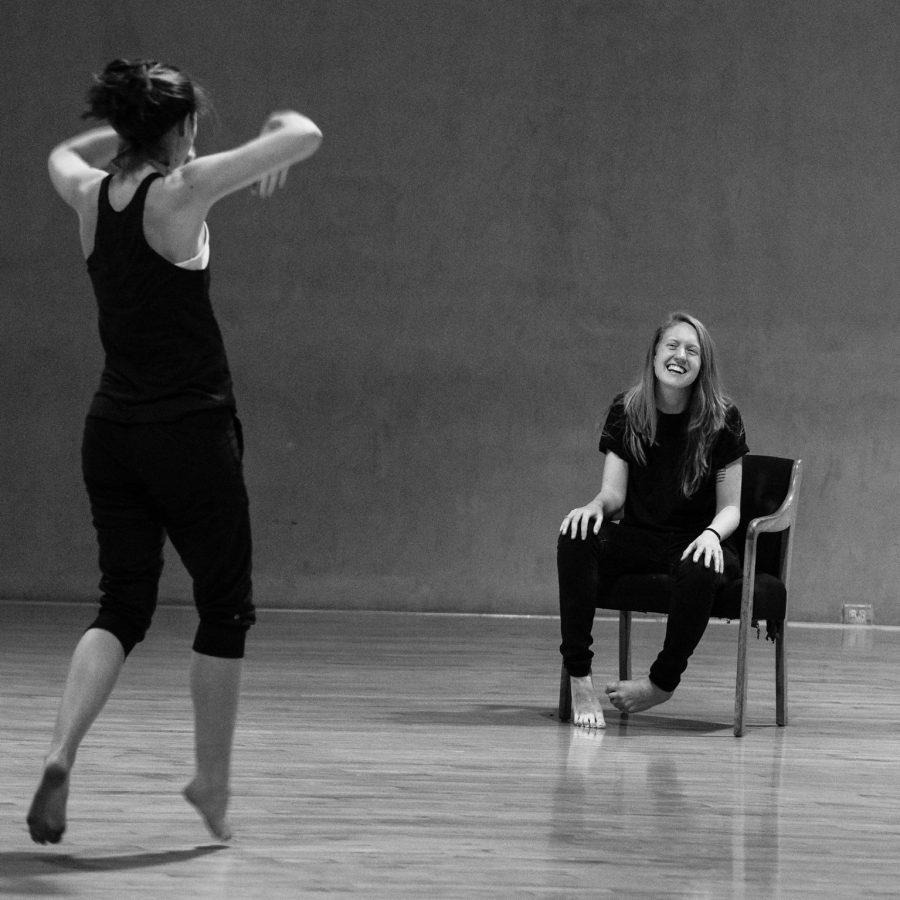In a rapidly evolving cultural climate, the arts rely on perpetual renovation to maintain relevance. The keen sense of inventiveness that artists often possess propels their craft forward. Among these artistic innovators is Kristin Idaszak, a playwright with an affinity for testing and transcending theatrical boundaries.
Idaszak found her calling at her childhood community theater. “I figured out early on that I didn’t want to be onstage, but the whole dazzling world behind the scenes captured my imagination and eventually became my profession,” she told the UCSD Guardian.
Idaszak went on to earn her Master of Fine Arts in playwriting from UC San Diego. Her experience at UCSD was more transformative than developmental. Among her takeaways was a re-examination of playwriting rudiments. “Dramatic action, story [and] dialogue — simplicity is actually extremely hard to achieve, and it’s what I’m always striving for.”
For Idaszak, the writing process takes form according to whatever project she’s working on, as her writing generally yields disparate plays. “Currently I’m working on a play about the advent of toxicology in 1920s New York City, so there’s a lot of research,” she said. Then, the research lends itself to composition. “My writing process is primarily rewriting.”
Idaszak’s diverse works are united by a foundation in the contemporary human experience. Gender, race, class and sexual orientation aren’t so much subjects of her writing as they are context. “While I don’t write plays that are overtly political in nature, I’m very intentional about telling stories with women’s experiences at the center, especially queer women. Those are the stories I write because that’s the frame I’m coming from,” she explained.
Concerning character creation, Idaszak told the Guardian, “For me, plays tend to start with a milieu, and then I start to figure out who are the people who populate that milieu.” She emphasized the importance of crafting characters with complex personhood in order to reflect reality. “I think people, in the world, are so capricious that I always think it’s a little strange when someone says, ‘That’s not in character.’”
For Idaszak, a compelling play is one that reinvents conventional structure and creates an immersive, inclusive experience for the audience. “I think it’s really important for me, when I see a play, to be part of the community that exists in the theater that night,” she said.
She admires work that transcends the standard separation between audience and performance and values daring artistic choices. “I also really love work that lives at the extremes of simplicity and spectacle,” she added. “I tend to respond to work that’s pushing its own limits.”
Among her favorite plays are “Gatz” by Elevator Repair Service for its boldness and “Soft Goods” by Karen Sherman, a form-bending dance theatre work. In addition, “‘Passion Play’ by Sarah Ruhl has a special place in my heart — I worked on that play at a really pivotal juncture in my life, and it left an indelible impression on me,” she said.
Idaszak has recently been exploring the realm of dance theatre. In 2014, she met dance theatre artist Erin Tracy, and the two have since become collaborators. “We’re always trying to get at the question, where does a work begin? What’s the first impulse? Is it language, or can it come before language?” Idaszak mused. Their latest work, which premiered at the La Jolla Playhouse, is “Though It May Shift,” directed by Tracy and featuring a mosaic of dancers, musicians and writers. Idaszak used language to mimic the abstract communicative powers of choreography. “Starting out, I don’t know how to do that or necessarily what that even means. The writing process is a voyage of discovery,” she said.
Her advice for aspiring playwrights: “Read everything you can. See everything you can.” She advocated developing interests in and outside of theater and finding collaborators. “Then, I think it’s about persistence,” she added.
Idaszak’s work is largely devoted to confronting intimidating and potentially impenetrable subject matter. When asked how she approaches the ineffable, Idaszak explained that she believes in using humor and joy as mechanisms for storytelling in addition to the philosophical questions she poses in her plays. “I think the great joy and challenge of writing for the theater is using all the tools at our disposal — spectacle, language, music, silence, movement [and] the collective presence of artist and audience — to get at the things that exist beyond our ability to name them,” she said.
Photo by Jim Carmody








